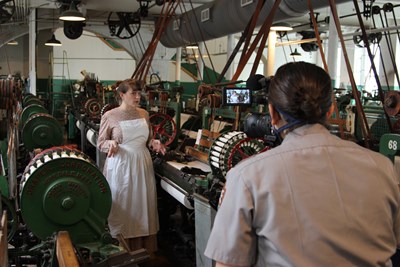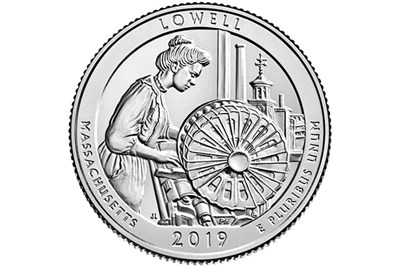Education Partnership Between UML and Lowell National Historical Park Was a First
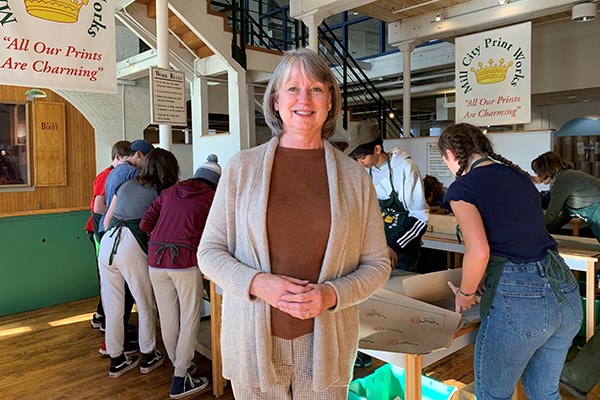 Image by K. Webster
Image by K. Webster
11/08/2022
By Katharine Webster
When Sheila Kirschbaum’s son began going to kindergarten in Lowell in 1989, she was teaching English at Rivier University in Nashua, New Hampshire.
“Here I was, a teacher, and I thought, ‘I can’t just send my little Andy to the Lowell Public Schools without learning more about them and figuring out what I can do to support them,’” she says.
Kirschbaum began attending monthly meetings of Lowell’s Citywide Parent Council, which were facilitated by Mary Bacigalupo, coordinator of partnerships for UML’s School of Education and a community activist.
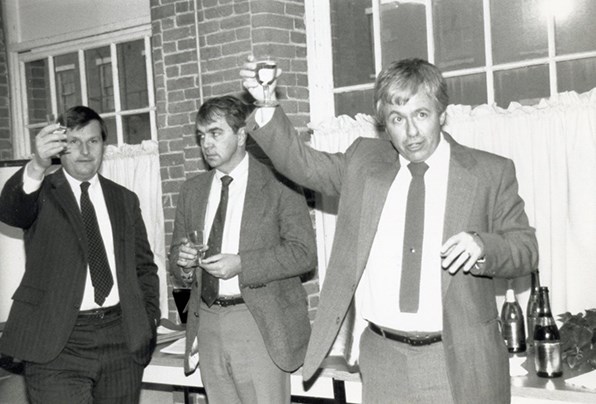 Image by Tsongas Industrial History Center archives
Image by Tsongas Industrial History Center archives
Funded by federal grants and budget appropriations and championed by the late U.S. Rep. Paul Tsongas, the park was the first to focus on industrial history when it opened in 1978. The new education partnership was also the first of its kind when it opened in the Boott Cotton Mills, a former textile mill complex, on Oct. 15, 1991.
Kirschbaum began working as a part-time museum teacher six months later, introducing schoolchildren to industrial history and technology, labor and immigration history and the environment through practical activities.
“It was hands-on industrial history, which is human history. We asked questions like, ‘How did people get here? How was cloth even made? Where was the cotton for the cloth coming from? What was the impact on the environment?’” says Kirschbaum, who became the Tsongas Industrial History Center’s director in 2011. “I was hooked. There was no going back.”
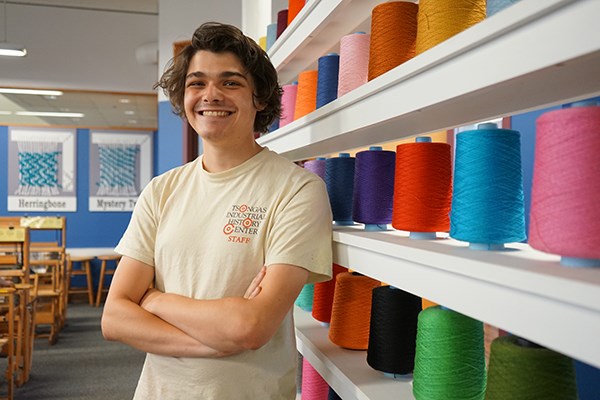 Image by K. Webster
Image by K. Webster
The center quickly became a model for educational partnerships between other national parks and teaching colleges.
Under its first director, Ed Pershey, and School Liaison Dorrie Kehoe, it also forged an enduring partnership with the Lowell Public Schools. In 1994, Kirschbaum was at the table when they agreed that the center would discount its prices for the city, and in turn every Lowell fourth-grader would come on a field trip.
“We want to give them pride of place,” Kirschbaum says now. “Of all the things I’ve ever done here, I’m most pleased about that partnership and the fact that everyone around that table was interested in making that happen.”
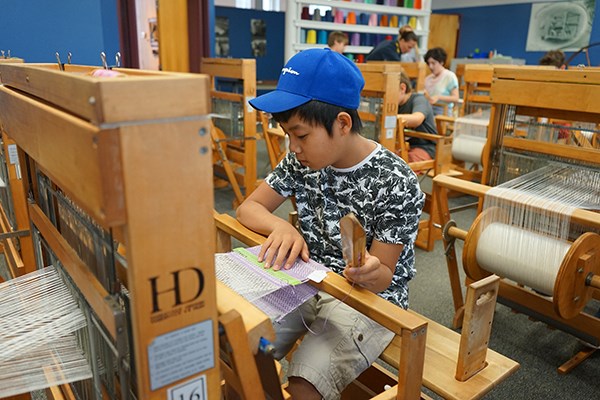 Image by K. Webster
Image by K. Webster
Among them was Harold Crowley, a retired middle-school science teacher from Quincy, Massachusetts, who served on the center’s first teacher advisory board and donates $1,000 to an endowment benefiting its programs every year.
That teacher advisory board helped the center’s educators figure out how to design the hands-on workshops and connect them to the school curriculum. The hands-on workshops include the Water Power room, where students can test water wheels and build canals before or after visiting the park’s River Transformed exhibit in the Suffolk Mill, and Bale to Bolt, where students learn how to weave manually on individual looms and tour the park’s industrial weave room with its power looms.
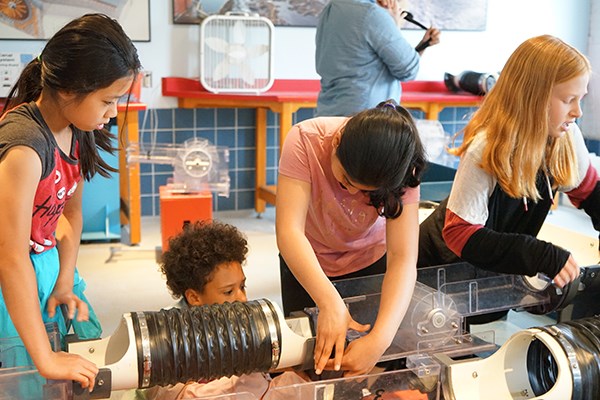 Image by K. Webster
Image by K. Webster
Crowley and other science and history teachers in Quincy designed a whole curriculum, “Farm to Factory Through Technology,” around their annual Tsongas Industrial History Center field trip and a similar field trip to Old Sturbridge Village. Not only was their curriculum named a National Program of Excellence by former President George H.W. Bush, but students continued to be inspired by their experiences in Lowell for years, Crowley says.
“They never forget that day,” he says. “I’ve been retired for 27 years now, and I still have former students who remember their visits to Lowell and Sturbridge.”
At the 30th anniversary event, several people who were involved in the history center from its early days were recognized, including Crowley; Don Pierson, dean of the School of Education at the time of the center’s founding, former center Curriculum Specialist Elizabeth Hoermann and Kehoe, the school liaison.
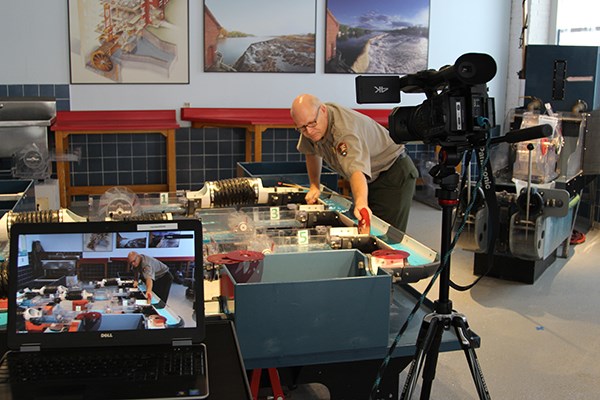 Image by Tsongas Industrial History Center
Image by Tsongas Industrial History Center
Now, the center is working on a new strategic plan that will continue its legacy of innovation, especially in developing lessons and field trips centered on climate change, civics education and social justice, Kirschbaum says.
“Teachers need more programming on these issues,” she says. “Anything we can do to help students understand the natural world and human impacts – the world we became as Lowell was blazing its path as an industrial leader, without seeing potential impacts to the planet – we’re going to do.
"And maybe we can help students envision technology that will help us solve some of the problems we now face.”

